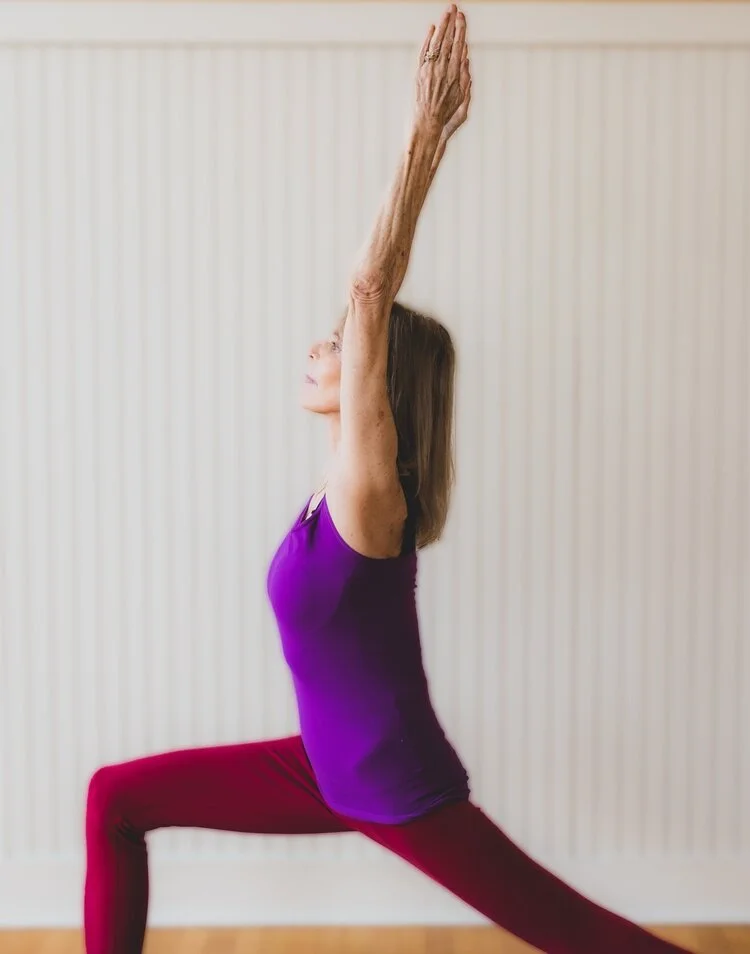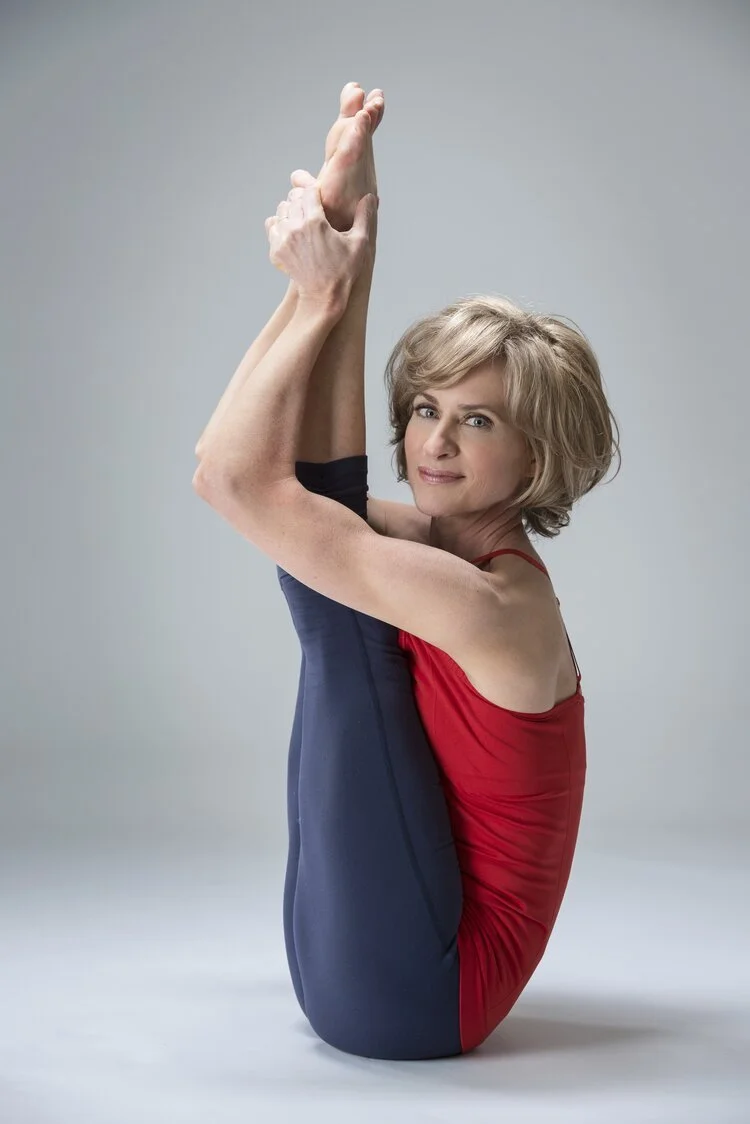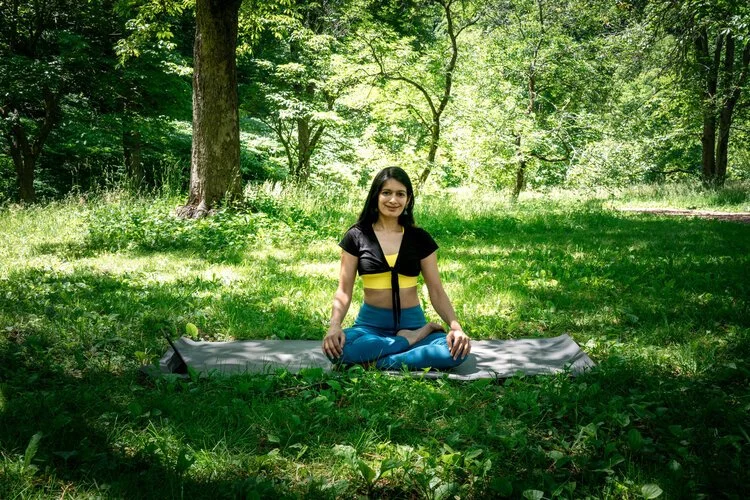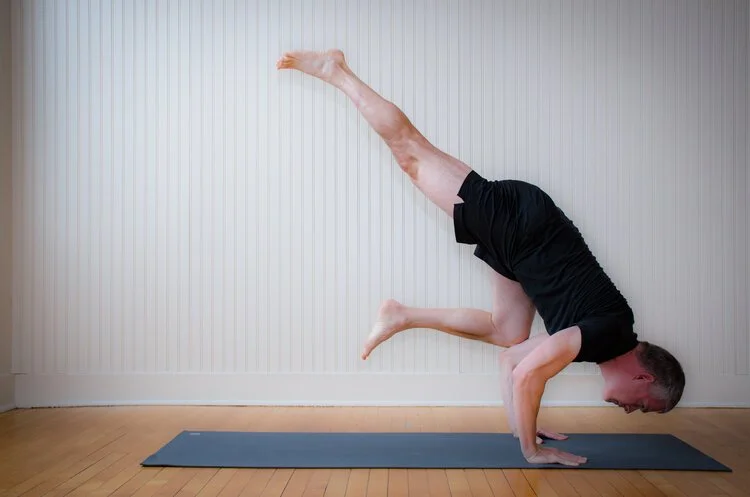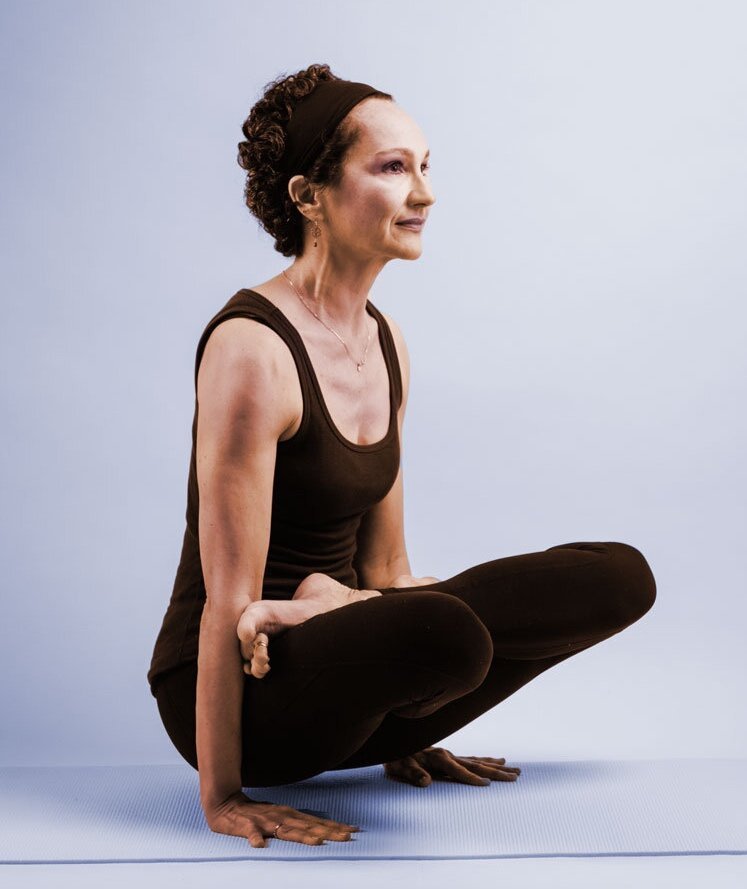Drishti: Tapas
Patricia Walden, Iyengar School Director
Tapas is one of the three principles that leads to self-transformation through yoga. It is the fire of practice that transforms us, giving us both strength and resilience, and leading us to the Self. For someone to transform through yoga, they need to practice, and tapas is the determination and inspiration that fuels us from within. Fortunately, as you practice, you develop the habit of practice--- so the fire that fuels us eventually sustains us. When intentional, tapas becomes its own good habit, we are established in yoga."
Natasha Rizopoulos, Vinyasa Senior Teacher, Lead Teacher Trainer
Many years ago, a dear friend gave me a definition of tapas that I have loved and shared ever since: “The willingness to undergo great sensation in service of transformation.” I find this explanation compelling for a variety of reasons, primary among them the emphasis on choosing a practice that will change your life in ways that are significant and perhaps even existential. In other words, when you identify and dedicate yourself to a form of tapas, (which could be a physical, mental or emotional commitment) it needs to be an effort to move your life forward in real and authentic ways, not just a continuation of something you are already skilled or adept at. One person’s tapas will look very different from another’s. When I was younger, for instance, what came very naturally to me was a strong Ashtanga practice. It looked difficult (and was in fact physically demanding) but it didn’t feel difficult, because I was predisposed to enjoy that kind of exertion. What was actually hard for me, and took many more years to develop, was a meditation practice. Sitting with the discomfort of my monkey brain was my true tapas. And yet for someone else, a rigorous physical practice might be the very discipline needed to balance to a natural tendency towards stillness or quiet. The point is to approach tapas through the lens of its Sutra partner svadhyaya, (Self-study) so that one can pinpoint where growth is needed, rather than just endlessly rehearsing familiar patterns. True change is hard and requires stamina. Inertia and habit are powerful forces. Tapas is our opportunity to cultivate the patience and persistence that can make our aspirations real.
Tristan Boyer Binns, Iyengar Faculty
Right now? Tapas means showing up, no matter what is going on, showing up and teaching, showing up and practicing. Showing up and being counted. It's hard and I'd rather not many days, but tapas is not meant to be easy.
Sami Lea Konczewski, Vinyasa Faculty
Tapas is steady persistence. It is not a New Year's resolution. It does not have a beginning or an end. Tapas is an ongoing commitment to practicing that which is both challenging and calming. It changes shape, it moves through metamorphosis, but it is unwavering.
Kate Heffernan, Vinyasa & Restorative Faculty, Teacher Trainer
Like with many sanskrit words & ideas, the term tapas has a few ways it could be interpreted. The way I understand tapas is to practice discipline, this can be in regard to our practice of asana & our yoga practice, but also in regards to our role in a community, to our role in social justice & creating equity. Tapas is the discipline to keep our eyes open. To not turn away from discomfort, but to acknowledge it and tend to it. The discipline to continue looking within ourselves so that we might be in better service to the world around us. Discipline to choose to live in integrity, even when no one is looking, even in the face of difficulty, even in the face of exhaustion. To learn, rather than quitting, to have the discipline to rest, and to come back emboldened and renewed.
Sabbi Lall, Vinyasa & Restorative Faculty
Tapas is so important. I see it as being disciplined about life and practice. For Patañjali, tapas is essential for kriyā yoga (action-oriented yoga). It's closely tied to study and devotion. Together these three pillars guide and support practice.
Kate Robinson, Vinyasa & Restorative Faculty, Teacher Trainer
I get worried about tapas. The heat, the burning off of impurities. This term, devoid of historical context, is ripe for white folks to twist into a platitude about "focus" or achievement or something deeply appropriated, saccharine, or superficial. So, I will talk about heat. Before yoga nidra, I teach a mellow practice. Before meditation I move. In midwestern culture, it's referred to as "getting your yayas" out. Everything in nature needs rest. Deep pauses are required for all living things. Heat, warming the muscle can help us release potential energy, burn through some excess glycogen and allow the nervous system to wind down. So, when I am anxious, I work with lunges and balance, getting the blood moving through the thighs. You don't need much heat to hit the reset button. Asana translates to seat. There is a reason asana is taught before meditation, it prepares the body to take a damn seat. Side note. You ain’t dirty.
William Balsham, Vinyasa Faculty
The part of tapas that resonates most with me is cultivating a sense of self-discipline. In a very practical sense, if we are lucky enough to have a job where we can work from home, we need to be disciplined about the work, since we don't have our bosses/coworkers to make sure we are working.
Marina Traub, Vinyasa & Restorative Faculty, Teacher Trainer
For me, tapas is heat generated as we shed layers of unconsciousness. We start to awaken, right, we start to really know ourselves via a mindfulness practice of some kind, and then the patterns that don’t reflect us and the habits that are no longer serving us start to fall away. But they’re really ingrained, they’re really in there, so it’s hard. They hang on and don't let get easily. You have friends who are comfortable with the old you, and a life that was built around the old, unconscious you. But we stay the course and commit to evolution and enlightenment however uncomfortable the process, however unknowable the outcome. Tapas is both the heat generated by the friction of that molting process and the fiery steadfastness it takes to endure the change.
Nadja Refaie, Iyengar Faculty
For me tapas is the work, sometimes hard work, of showing up again and again and working on something. Maybe it’s cultivating a regular asana practice or refining a particular yoga pose. It can mean establishing a regular meditation or pranayama practice. It can also mean helping your child with schoolwork during remote school. Or during the pandemic, wearing a mask each time you leave the house. All of these require persistence, perseverance, and, above all, a desire to make a positive change.
Kim Povey, Boston Ayurveda School Director
I resonate with Mr. Iyengar’s words: "The whole science of character building may be regarded as a practice of tapas." Tapas doesn’t mean to push to the point of burnout. It means to apply effort to the point of burning through negative tendencies. We need to digest our experiences and gain strength, wisdom, and courage from them regardless if they are bitter or sweet. Agni (digestive fire) refers to the transformative power which burns dross so we can shine at our best. We can apply tapas in everything we do. I apply it by having a strong work ethic. I use it in leadership, through practicing patience, and in parenting. I cultivate it through practices such as ayurvedic yoga, archery, and by doing simple household tasks. Calm, simple steady, focused attention on the task at hand requires the type of effort that doesn’t snap under pressure but yields and stretches our human potential.
Stephen Gresham, Faculty Director
In Sanskrit, tapas means “heat,” and is one limb on the 8-limb path, Some individuals are detrimentally impacted by life which subsequently influences impurities. With the practice of yoga, individuals can use heat to rid oneself of these impurities (body, mind, and spirit). Yet, some question that, as all are “divine,” why should we rid themselves of anything? Rather than burning of impurities, there is a shift in meaning, to creating friction (going against complacency and what is easiest) in an effort of being the best version of self.




